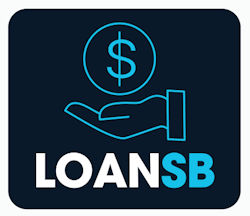Top Choices for Loans for Tech Startups and Emerging Technologies

Securing financing is often one of the biggest challenges for tech startups and businesses involved in emerging technologies. The unique nature of these businesses, with their high growth potential and often substantial upfront costs, requires specialized loan options tailored to their specific needs. Today, we will explore the top choices for loans available to tech startups and emerging technology companies, providing an in-depth look at each option and offering tips on how to successfully secure these loans.
1. SBA Microloans
The Small Business Administration (SBA) offers microloans that can be an excellent fit for tech startups. These loans are typically less than $50,000 and can be used for working capital, inventory, supplies, and equipment.
Advantages:
- Low-interest rates
- Flexible use of funds
- Accessible to new businesses with limited credit history
Tips for Securing an SBA Microloan:
- Prepare a solid business plan outlining your technology and market potential.
- Highlight your team’s expertise and previous successes.
- Demonstrate a clear plan for how the loan will help grow your business.
2. Venture Debt
Venture debt is a type of loan specifically designed for startups that have already raised equity funding. It provides an additional source of capital without diluting ownership.
Advantages:
- No equity dilution
- Can be used for various purposes, including working capital and expansion
- Often easier to obtain than traditional bank loans for startups
Tips for Securing Venture Debt:
- Secure equity funding first to show investors’ confidence in your business.
- Provide detailed financial projections demonstrating your ability to repay the loan.
- Showcase strong growth metrics and milestones achieved.
3. R&D Tax Credit Financing
Research and Development (R&D) tax credit financing allows startups to receive funds based on anticipated R&D tax credits. This is particularly useful for tech startups investing heavily in innovation.
Advantages:
- Access to cash flow before receiving tax credits
- Supports ongoing R&D activities
- Can be combined with other funding sources
Tips for Securing R&D Tax Credit Financing:
- Keep meticulous records of your R&D expenses.
- Work with a tax advisor to accurately calculate your eligible credits.
- Present a clear plan for how the funds will accelerate your R&D efforts.
4. Equipment Financing
Tech startups often need expensive equipment to develop their products. Equipment financing allows businesses to purchase necessary equipment and pay for it over time.
Advantages:
- Preserves working capital
- Spreads the cost of equipment over its useful life
- Can be easier to obtain as the equipment serves as collateral
Tips for Securing Equipment Financing:
- Provide detailed quotes and specifications for the equipment you need.
- Show how the equipment will enhance your business operations and profitability.
- Prepare a strong credit application with supporting financial documents.
5. Government Grants and Loans
Many governments offer grants and loans to support tech startups and emerging technologies, often targeting specific sectors like renewable energy, biotechnology, or artificial intelligence.
Advantages:
- Non-dilutive capital
- Can provide significant funding amounts
- Supports specific areas of innovation
Tips for Securing Government Grants and Loans:
- Research and identify grants and loans relevant to your technology.
- Follow application guidelines carefully and meet all deadlines.
- Highlight how your project aligns with government priorities and benefits the public.
6. Crowdfunding Platforms
Crowdfunding has become a popular way for tech startups to raise funds. Platforms like Kickstarter and Indiegogo allow startups to raise small amounts of money from a large number of people.
Advantages:
- Access to a large pool of potential investors
- No repayment obligation if the funding goal is not met
- Can double as a marketing tool to generate interest in your product
Tips for Successful Crowdfunding:
- Create a compelling campaign with a clear value proposition.
- Use high-quality visuals and videos to showcase your product.
- Engage with your backers and provide regular updates on your progress.
7. Angel Investors and Accelerators
While not traditional loans, angel investors and accelerators can provide funding in exchange for equity, along with mentorship and networking opportunities.
Advantages:
- Access to experienced mentors and industry connections
- Potential for significant funding
- Valuable feedback and support for business growth
Tips for Attracting Angel Investors and Joining Accelerators:
- Network within the startup community to find potential investors and accelerator programs.
- Prepare a strong pitch highlighting your technology, market potential, and team.
- Be prepared to give up some equity in exchange for the benefits provided.
For tech startups and emerging technology companies, securing the right type of financing can be crucial to their success. By exploring options such as SBA microloans, venture debt, R&D tax credit financing, equipment financing, government grants and loans, crowdfunding platforms, and support from angel investors and accelerators, businesses can find the funding that best suits their needs. Each option comes with its own set of advantages and requirements, so it’s essential to prepare thoroughly and choose the one that aligns with your business goals and growth strategy. With the right approach, tech startups can secure the necessary funds to innovate, expand, and thrive in today’s competitive market.
Additional References
To assist tech startups and emerging technology companies in securing the right financing, here are some valuable government and organizational resources:
- Small Business Administration (SBA)
- SBA Microloans: Information on SBA microloan programs.
- SBA Loans and Grants Search Tool: Find additional loan and grant opportunities.
- National Science Foundation (NSF)
- SBIR/STTR Programs: Funding for small businesses engaged in R&D.
- U.S. Department of Energy (DOE)
- SBIR/STTR Programs: Grants for energy-related R&D.
- National Institutes of Health (NIH)
- NIH SBIR/STTR: Funding for innovative research in biomedical and behavioral sciences.
- U.S. Economic Development Administration (EDA)
- EDA Programs: Financial support for economic development projects.
- Research and Development (R&D) Tax Credits
- R&D Tax Credits Information: Details on how to claim R&D tax credits.
- Angel Capital Association (ACA)
- Angel Capital Association: Network of angel investors providing funding for startups.
- Indiegogo
- Indiegogo Crowdfunding: Platform for crowdfunding innovative projects and startups.
- Kickstarter
- Kickstarter Crowdfunding: Popular platform for funding creative projects and tech startups.
- Community Development Financial Institutions (CDFI) Fund
- CDFI Fund: Provides access to credit and capital for underserved communities.

Please contact us if you have any feedback or questions.


